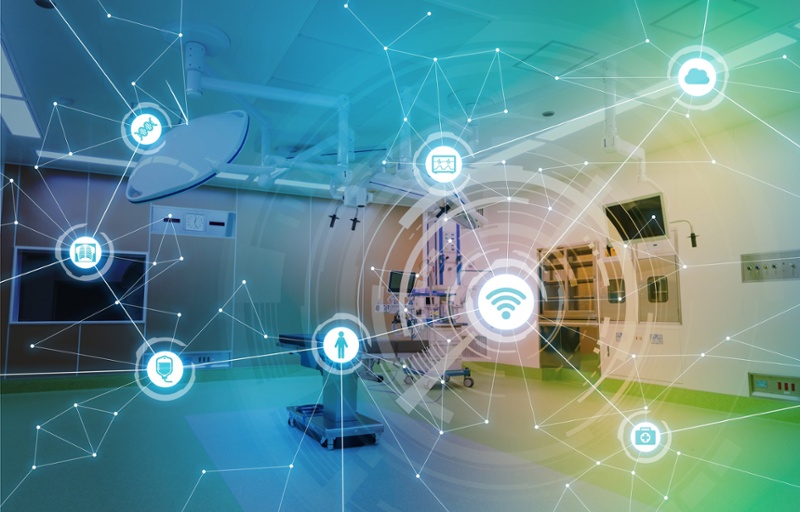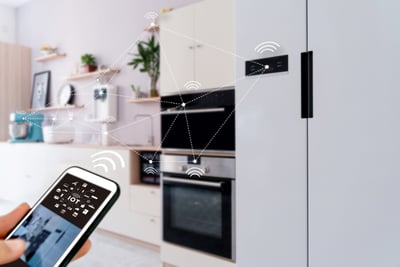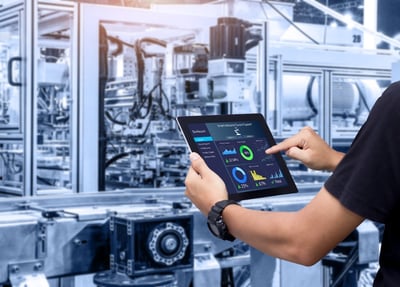
Cyber-physical systems (CPS) and the Internet of Things (IoT) are both complex platforms that share a common goal of increasing technological reliability, expanding advancement opportunities and exposing areas of untapped potential.
While CPS and IoT build upon each other, it is important to understand the difference between CPS and IoT — including how they work together to bring about significant advancements in a variety of domains and industries.
In order to fully grasp how IoT and CPS differ and how they collaborate to accelerate progress, it is important that you first understand how each of these platforms is separately defined:
What is the Internet of Things?
Investopedia, a leading source on investing, technology and finance, defines the Internet of Things:
“The Internet of Things (IoT) refers to a network comprised of physical objects capable of gathering and sharing electronic information. The Internet of Things includes a wide variety of “smart” devices, from industrial machines that transmit data about the production process to sensors that track information about the human body.”
Further, the Internet of Things enables computer systems and devices to communicate “in real-time,” which increases efficiency and brings information to light much more quickly than if otherwise reliant on “human intervention.”
What are cyber-physical systems?
The field of cyber-physical systems is cross-disciplinary in nature — building upon complex technology systems that promote advancement in countless fields.
Cyber-physical systems are engineered systems where functionalities and salient properties emerge from the networked interaction of computational and physical components. CPS technology seeks to develop the processes, networking and technology needed for the seamless integration of cyber and physical systems.
CPS technology challenges what we know about the limitations of smart systems and pioneers avenues through which advancement is possible.
What is the difference between CPS and IoT?
“The Internet, whether involving people or things, is simply a mechanism for transmitting information. What makes smart, connected products fundamentally different is not the internet, but the changing nature of the “things.” It is the expanded capabilities of smart, connected products and the data they generate that are ushering in a new era of competition.”
— Harvard Business Review, How Smart, Connected Products Are Transforming Competition
The Internet of Things — sometimes called Industrial Internet (II) — is the technology that enables the interconnection of all types of devices through the internet to exchange data, optimize actuators and monitor devices in order to generate results.
Cyber-physical systems, on the other hand, consist of computation and control components tightly combined with physical processes — providing the foundation for IoT and II and bringing about advanced efficiency and connectivity of devices, systems and services in countless domains.
By harnessing the power of cutting-edge CPS technology, in conjunction with the Internet of Things, cyber-physical systems professionals harness the power to facilitate progress and improve quality of life for millions of people around the globe.
Cyber-physical systems examples across industries today
According to the Information Technology Laboratory, “the ability to design and build successful cyber-physical systems will address many national priorities in ways that traditional computer science cannot…” In other words, the benefits of cyber-physical systems are not limited to industries related to engineering and technology.
The benefits of cyber-physical systems technology impact nearly every single industry today, including:
|
Smart city management Manufacturing Agriculture Sustainability Health care Automotive Military |
Smart transportation Security Disaster response Smart grid Exploration Robotics Aerospace |
By expanding the capabilities of smart, connected products in a wide variety of fields, CPS technology allows us to imagine and develop important intelligent systems that result in the betterment of industries and communities.
Develop the skills needed to land a career in cyber-physical systems at Vanderbilt University School of Engineering:
A global leader in cyber-physical systems research and education, Vanderbilt University is uniquely qualified to offer a well-recognized, cross-disciplinary master of engineering in cyber-physical systems. In fact, Vanderbilt faculty significantly contributed to the formation of the CPS research agenda. This means that as a graduate student enrolled in Vanderbilt University’s cyber-physical systems program, you will learn with and from leaders in the CPS community — an incredibly valuable opportunity for future experts in the field.
“I grew significant knowledge of the vast domain space and acquired a disciplined work ethic and project leadership skills. The master of engineering in cyber-physical systems provided me with respect in the field and significantly opened up future career opportunities.” — Ron Picard, M.Eng. 2019, Computer Engineer
If you are ready to take the first step in securing a meaningful career in cyber-physical systems, we encourage you to connect with us soon: request more information or start your online application today.









